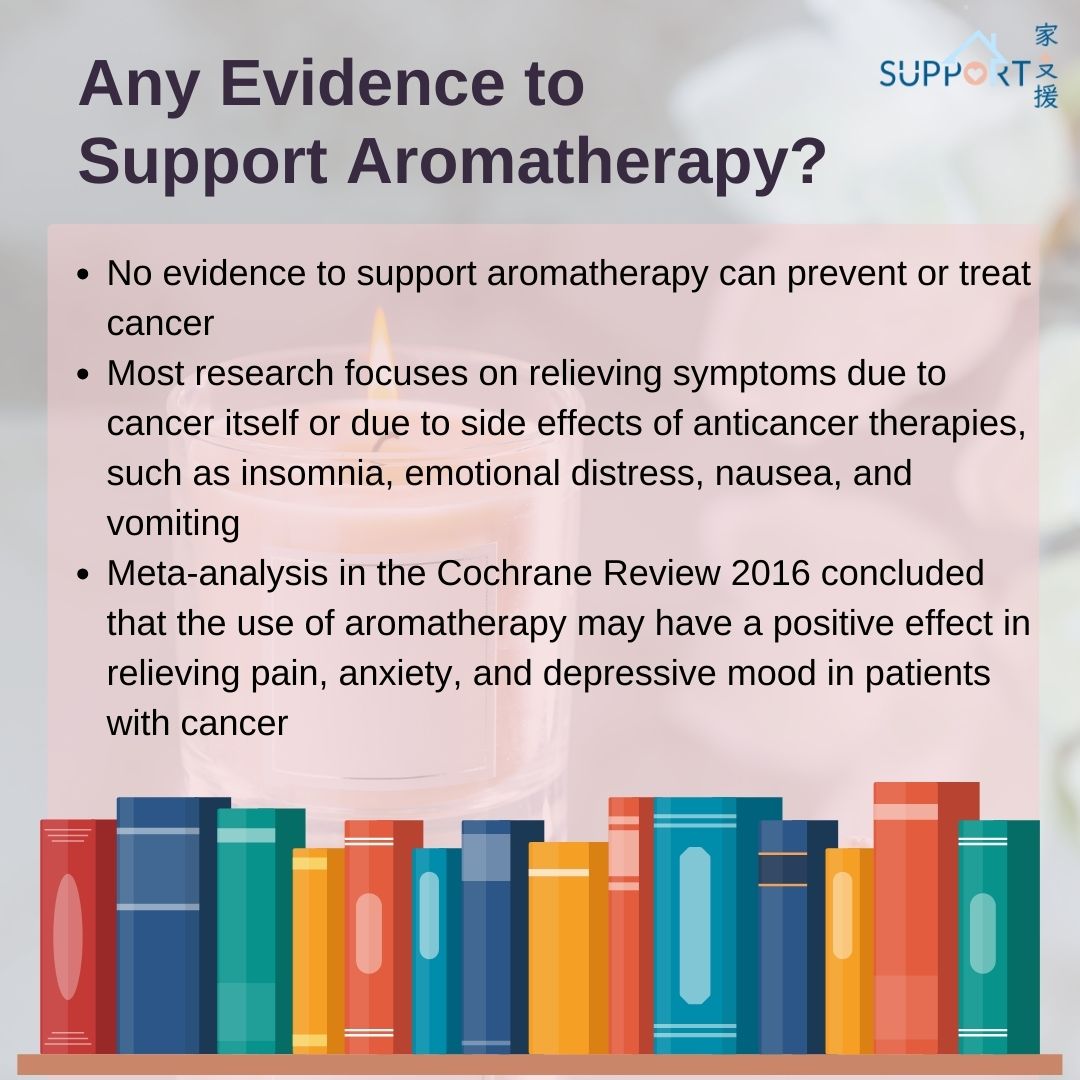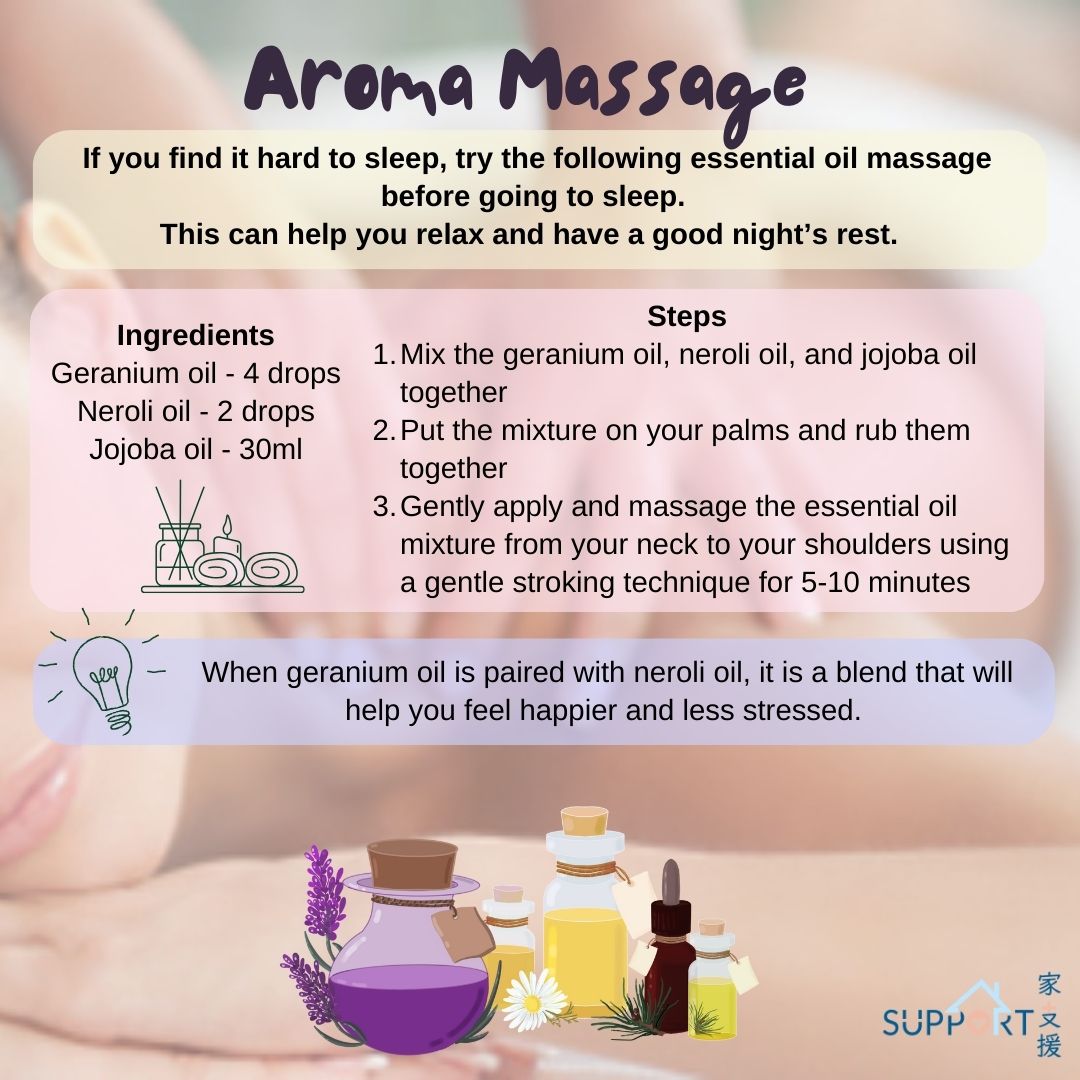As of now, there is no evidence to support the use of aromatherapy in preventing or treating cancer. Most research about the effectiveness of aromatherapy and cancer mainly focuses on relieving symptoms due to cancer itself or due to side effects of anticancer therapies, such as insomnia, emotional distress, nausea and vomiting. A meta-analysis published in the Cochrane Review in 2016, which included 19 randomised control trials (RCT), concluded that the use of aromatherapy and massaging may have a positive effect in relieving pain, anxiety and depressive mood in patients with cancer. However, these studies usually had small sample sizes which means that the quality of research may not be good.
Moreover, more studies are needed to confirm if aromatherapy can relieve the side effects of chemotherapy. Research is currently well underway in many countries to determine if the essential oils of ginger, lavender, sweet orange and jojoba are effective remedies of chemotherapy-induced side effects such as nausea, fatigue and insomnia.







